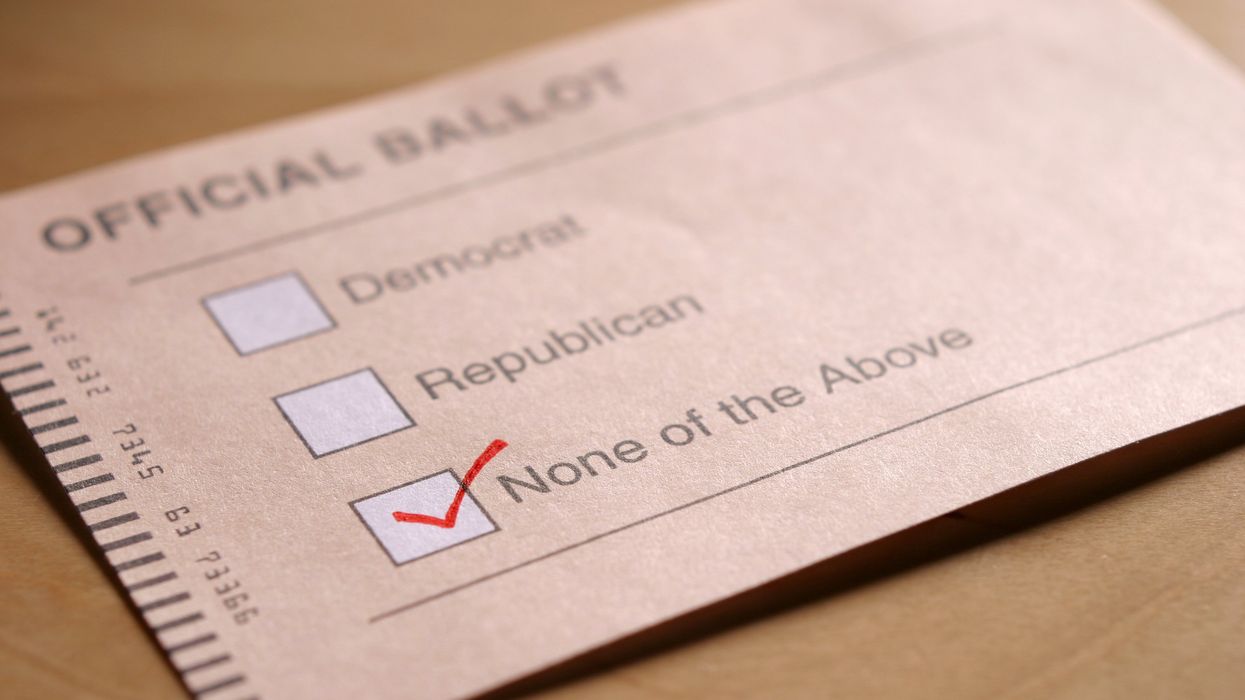Opdycke is the founder and president of Open Primaries, a national advocacy organization working to enact and protect open and nonpartisan primaries and enhance the visibility and power of independent voters. His monthly column, Brack Tacks, offers insights into how a people-powered, non-ideological democracy movement can be most effective in revamping our political process and culture to meet the needs of a complex and ever-changing 21st century landscape.
My parents have a birding dog, a Gordon setter named Tillie. Sometimes I will take her for a walk, and every time we are out and about her hunting instincts kick in when she sees a squirrel. She starts to stalk, walking quietly in a slight crouch, hoping to surprise and then pounce. She’s been doing this for 10 years and she never succeeds at even getting close to snagging a varmint. Why? She’s oblivious to the fact that a human being is right behind her, signaling the squirrel that something is coming. I swear that once a squirrel looked at me while Tillie was in hunting mode and through some form of interspecies communication asked me, “Is this dog oblivious to the fact that she’s attached to you?”
President Joe Biden is acting like Tillie. His squirrel is the growing number of independent voters in swing states, voters who rejected Donald Trump in 2020 and MAGA replicas in 2022. He wants those independents in Arizona, Nevada and Pennsylvania, where their numbers increase every month – produced in no small part by a growing disgust with partisan politics. Team Biden thinks it can win their support by simply reminding independents how terrible Trump is. But – like Tillie – they are oblivious to the fact that they are tethered to something that will give independents pause.
Biden is connected to the Democratic Party. In fact, he is the Democratic Party. And there is no organization more oblivious to how it ignores and disrespects independent voters than the Democratic Party. It’s true, independents broke decisively in 2022 against MAGA candidates whenever and wherever they were on the ballot. But Biden should not mistake that for any affinity among independent voters for the Democratic Party. Far from it.
What’s this you say? What could you possibly be talking about? Trump is the threat! He’s talking about a bloodbath if he doesn’t get the outcome he desires! Surely the Democratic Party is a better alternative in the eyes of independents.
Possibly. But the Democratic Party has a way of insulting independents whenever it gets the chance (believing few independents are actually independent). And they have a dismal record whenever and wherever independents stand up and say, “We don’t want to join a party, but we want to vote in taxpayer-funded primary elections.”
The Democratic Party in the District of Columbia is actively opposing an effort to allow independents to vote in local primaries, the only elections of consequence. The Democratic Party of Florida – along with the Republican Party – filed a lawsuit (unsuccessfully) to prevent a ballot measure for nonpartisan primaries from being on the ballot in 2000. The Democratic Party of Arizona bars independents from voting in presidential preference elections even though they are publicly funded and administered, and the party rejected a rules change introduced by younger Democrats at the state convention in 2022 that would have made a change. The Democratic Party of Nevada opposed ballot measure 3, which would create a nonpartisan system for state and federal races. New York. Maryland. Kentucky. Oregon. The list goes on.
Some forward-looking Democrats are working to change their own party’s relationship to independent voters. Legislators in New Mexico and Pennsylvania are championing legislation to give independents full voting rights. Democratic leaders in five states, including Nebraska party chairwoman Jane Kleeb, have gone out of their way to change their party rules to allow independents to participate in their primaries. But these voices are a minority within the party. And if Biden really wants to inspire independents in key swing states, he needs to address the role his own party plays in either ignoring or resisting efforts by independents to gain full voting rights.
The traditional Democratic Party playbook is to appeal to independents as if they are “Democrats lite”: Focus on abortion, portray the other side as an existential threat to democracy. It’s not a bad playbook. It’s true that independents rejected almost every Trump proxy in 2022’s competitive races. But Biden should think long and hard about whether the existing playbook will work in 2024. Independents are growing rapidly. The vast majority of independents are dreading a Trump-Biden rematch. Many of them will be looking seriously at third-party candidates.
If Biden wants independent votes, he’s going to have to work for them. And that will involve challenging his own party's opposition to granting independents full voting rights. He can’t just say “the Republicans are undermining our Democracy” and ignore his own party’s role in maintaining a partisan arrangement that excludes tens of millions of people from participating. He’s got to go further.
Or, like in Tillie’s case, the squirrel will just scamper away.




















